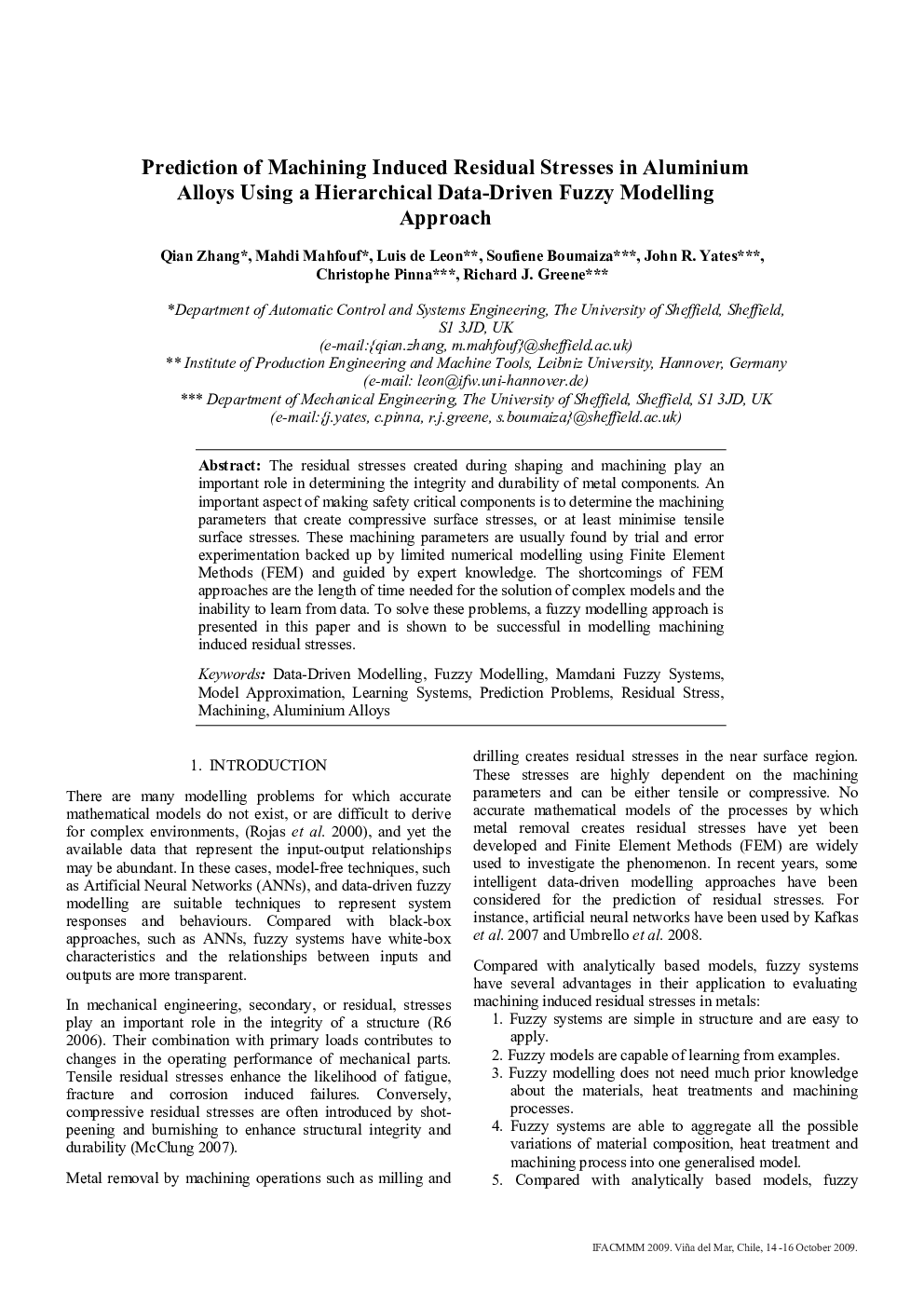| Article ID | Journal | Published Year | Pages | File Type |
|---|---|---|---|---|
| 720824 | IFAC Proceedings Volumes | 2009 | 6 Pages |
The residual stresses created during shaping and machining play an important role in determining the integrity and durability of metal components. An important aspect of making safety critical components is to determine the machining parameters that create compressive surface stresses, or at least minimise tensile surface stresses. These machining parameters are usually found by trial and error experimentation backed up by limited numerical modelling using Finite Element Methods (FEM) and guided by expert knowledge. The shortcomings of FEM approaches are the length of time needed for the solution of complex models and the inability to learn from data. To solve these problems, a fuzzy modelling approach is presented in this paper and is shown to be successful in modelling machining induced residual stresses.
